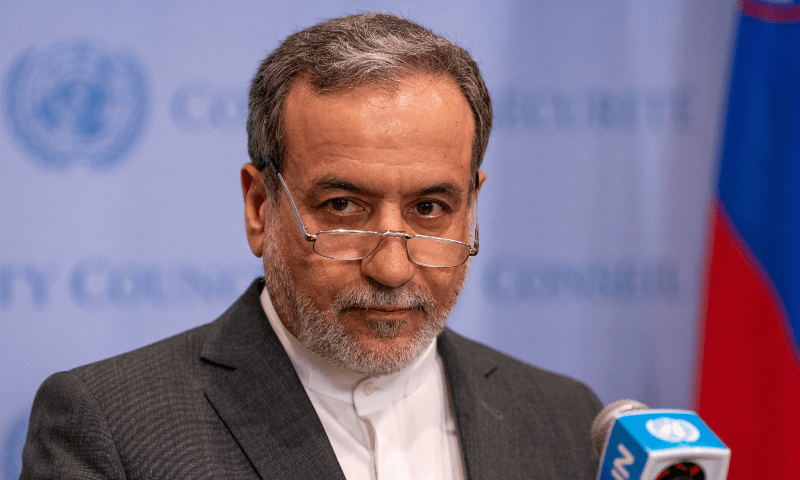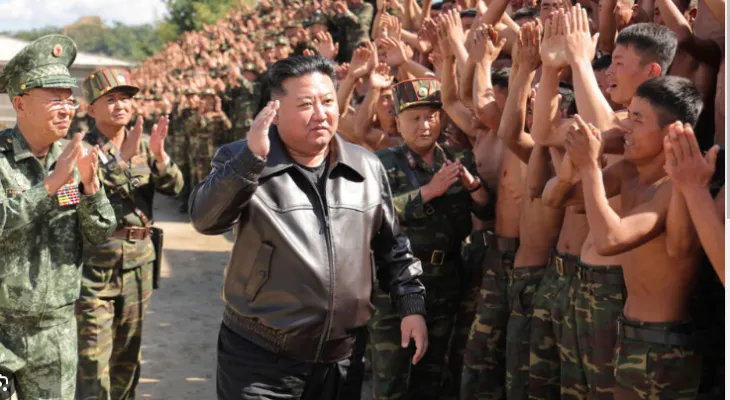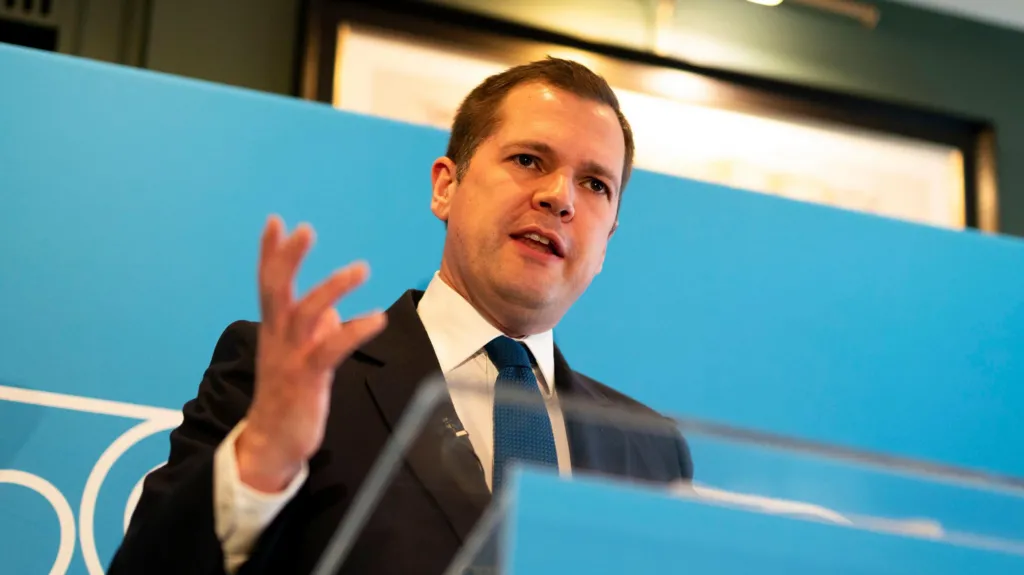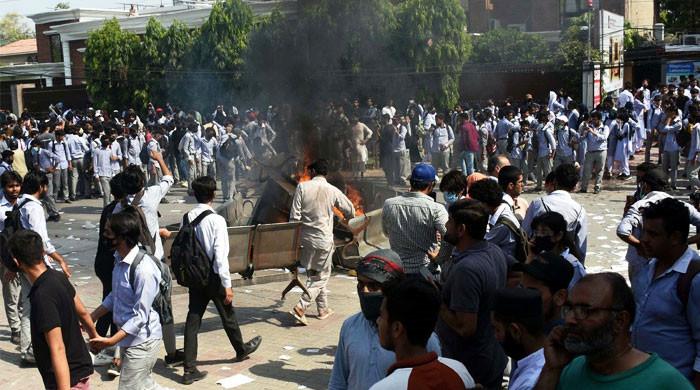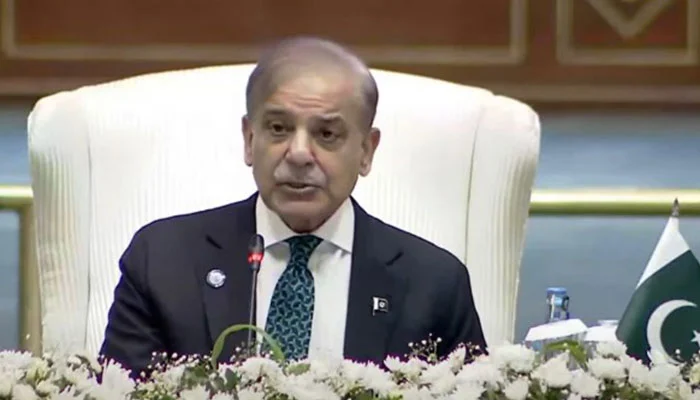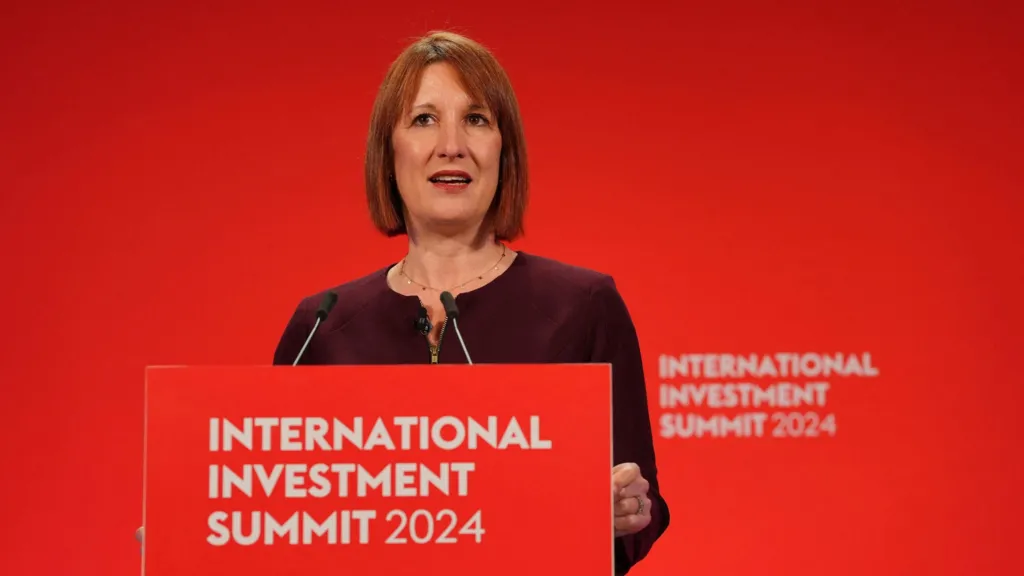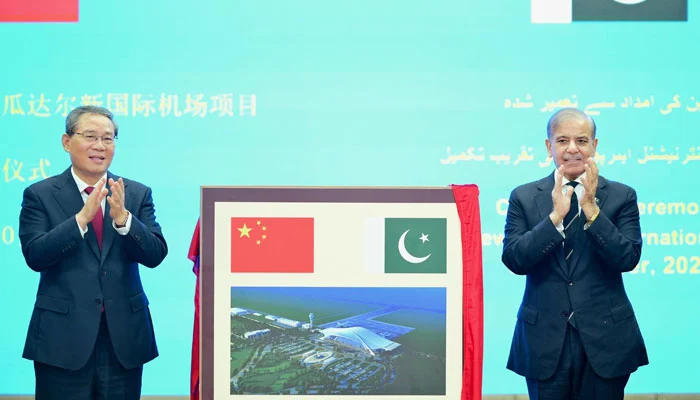ISLAMABAD: Prime Minister Shehbaz Sharif in his keynote address at the opening ceremony the Shanghai Cooperation Organisation (SCO) summit, said that the regional powers are at a historic moment of transition where sweeping transformations are reshaping the global, social, political, economic, and security landscape.
The 23rd meeting of the SCO Council of the Heads of Governments (CHG) — the highest-profile event hosted by the country in years — is being presided over by PM Shehbaz at the Jinnah Convention Centre in Islamabad.
Commenting on the diplomatic reverberations of the SCO summit, former ambassador Maleeha Lodhi said that Islamabad had significantly bolstered its international standing.
“By holding this summit, Pakistan’s diplomatic position has strengthened globally. This is an important diplomatic moment for Pakistan as important leaders are attending the summit,” said Lodhi while speaking to Geo News.
The leaders from the SCO member states attending the summit include China’s Premier of the State Council Li Qiang, Prime Minister of Belarus Roman Golovchenko, Prime Minister of Kazakhstan Olzhas Bektenov, Russian Prime Minister Mikhail Mishustin, Tajik Prime Minister Kohir Rasulzoda, Uzbek Prime Minister Abdulla Aripov, Kyrgyzstan’s Chairman of Ministers’ Cabinet Zhaparov Akylbek, and Iran’s First Vice President Mohammad Reza Aref.
Indian Foreign Minister Subrahmanyam Jaishankar’s participation at the event is a major highlight, marking the first such visit by an Indian FM in almost a decade amid frosty relations between the two nuclear powers.
Besides them, Mongolia is participating in the summit as an Observer State, represented by Prime Minister Oyun-Erdene Luvsannamsrai and Turkmenistan as Special Guest represented by Deputy Chairman of the Cabinet of Ministers Rashid Meredov.
Among other dignitaries attending the moot include SCO Secretary-General Zhang Ming, Director of Executive Committee SCO Regional Anti-Terrorist Structure (RATS) Ruslan Mirzayev, Chairman of the Board of SCO Business Council Atif Ikram Shaikh and Chairman of the Council of SCO Interbank Union Marat Yelibayev.
The government has taken stringent security measures to ensure the smooth conduct of the SCO meeting. The capital city has been shut down for the two-day summit with more than 9,000 police officers deployed alongside security forces.
PM champions regional peace, stability
Presiding over the meeting, PM Shehbaz said: “From the esteemed platform of the Shanghai Cooperation Organisation, a beacon of multilateralism, I stand in the belief that we possess not only the potential but the will to forge a future that is more prosperous and secure for our people.
“A future, that is inclusive, and reflective of the shared aspirations of all member states,” the premier said while addressing the meeting.
He also noted that the regional powers were at a historic moment of transition where sweeping transformations were reshaping the global, social, political, economic, and security landscape.
The premier said that Afghanistan, by virtue of its contiguity with the region, presents an invaluable opportunity for trade and transit, benefiting all SCO member states.
“A stable Afghanistan, is not only desirable, but essential, to fully realising these opportunities,” he added.
It may be noted that the neighbouring nation is part of the regional bloc. It holds the positon of an observer state but has been inactive since 2021, when the Taliban took over.
The premier called on the international community to step forward, with urgent humanitarian support for Afghanistan, while also urging its interim Taliban government to embrace political inclusivity to ensure that Afghan soil is not misused for terrorism against its neighbours by any entity.
PM Shehbaz highlighted the challenges of poverty in his address, saying that it was not just an economic issue but a moral imperative that demanded the collective attention of the regional states.
“With millions living in poverty within the SCO region, closer cooperation on poverty alleviation is critical,” he added.
PM Shehbaz underscored that Pakistan, as the permanent chair of the SCO Special Working Group on Poverty, has facilitated, several seminars, and webinars aimed at sharing of knowledge, and best practices.
He reaffirmed the country’s commitment to providing the required impetus to the collective efforts to address the root causes of poverty and uplift the quality of life for our people.
Speaking about another dire global issue, PM Shehbaz said that climate change is an existential crisis that transcends borders and its impacts are felt universally but more acutely by nations like Pakistan.
He went on to say that the country is on the frontline of climate-induced disasters.
“It is imperative that we prioritise environmental cooperation within the SCO to build resilience and secure a sustainable future for the generations to come,” the premier added.
Moreover, the prime minister maintained that Pakistan welcomes the recent SCO agreement on environmental protection and calls upon all member states to actively engage in both regional and global environmental efforts.
He said that the government has developed a “one of its kind” proactive, technology-driven, disaster management system.
“We look forward to organising, simulation exercises with SCO partners, to bolster, disaster preparedness, across the region,” PM Shehbaz added.
Emphasising the importance of connectivity, the premier urged the establishment of a robust SCO connectivity framework to boost regional trade and advance the vision of a connected Eurasia.
He also called for the expansion of flagship projects like the Belt and Road Initiative (BRI), the China-Pakistan Economic Corridor (CPEC), and the International, North-South Transport Corridor (INSTC) to enhance integration and cooperation, across the region.
“Let us not look at such projects, through the narrow, political prism and invest in our collective connectivity capacities, which are crucial to advancing the shared vision of an economically integrated region. Let us work together for a well-integrated and prosperous region that benefits all Member states,” he added.
Moreover, the premier stressed that unilateral coercive measures and protectionist policies run contrary to the principles of international law as they “stifle economic growth, hinder, technological advancements and exacerbate inequality”.
PM Shehbaz Sharif called on the SCO leaders to encourage private sectors in their respective countries to cultivate an environment that is conducive to business and investment within the region.
He said that the growing consensus, among member states on the use of mutual currencies for settlements is a promising development.
The premier added that Pakistan firmly believes that a stronger and more effective SCO is essential to achieving sustainable development in our region.
“We wholeheartedly endorse, the ongoing reforms, aimed at modernising the organisation, enhancing the resources and capabilities of the SCO Secretariat and the Regional Anti-Terrorist Structure,” he said.
PM Shehbaz reminded the SCO member states that the “true essence” of the multi-lateral forum extends, beyond political alliances and economic partnerships.
“Pakistan remains deeply committed to fostering people-to-people ties and cultural exchanges that bridge divides, cultivate understanding, and deepen cooperation. In unity and with shared purpose, we can build, lasting legacies, and enrich, the future, of all our nations,” PM Shehbaz said while concluding his keynote address.
Before the meeting officially kicked off, the premier welcomed the leaders at the venue, which was followed by a group photo.
FM Jaishankar calls for self-accountability for ‘lack of trust’
Speaking on the occasion, Indian FM Subrahmanyam Jaishankar felicitated Islamabad on assuming the SCO chairmanship and said that New Delhi’s full support to make its presidency successful.
Underscoring the need to have an honest discussion, Jaishankar called for self-accountability for the existence of a lack of trust, friendship and principles of good neighbourliness.
Saying that the world was moving towards a multi-polar system, the Indian FM noted that globalisation has created opportunities in trade, investment, communication, and other areas of cooperation which can result in regional development if it is taken advantage of.
Jaishankar’s visit to Pakistan is a rare one as it is the first in nine years after former Indian foreign minister Sushma Swaraj visited the country in 2015 for a summit on Afghanistan.
The relations between the two countries have been particularly sour since 2019 when Indian PM Narendra Modi revoked the limited autonomy of Indian-administered Kashmir.
The neighbouring governments have said that no bilateral meetings have been requested, and Jaishankar’s visit will strictly follow the SCO schedule.
Touching upon New Delhi’s participation in the summit, ex-ambassador Lodhi said: “India’s foreign minister made it clear before coming to Pakistan that he was coming for a multilateral event and that he was neither interested nor intended to hold a bilateral interaction.
“I believe that Pakistan also has the same attitude. I believe that the ice will not melt between India and Pakistan. Our deadlock is too intense, and such a meeting cannot move the situation towards a breakthrough,” she added.
China, Russia, Pakistan, Kazakhstan, Kyrgyzstan, Tajikistan, Uzbekistan, Belarus, Iran, and India constitute the Eurasian security and political group formed in 2001, while 16 other countries are affiliated as observers or “dialogue partners”.
SCO claims to represent 40% of the world’s population and about 30% of its GDP, but its members have diverse political systems and even open disagreements with one another.
Observers believe the bloc seeks to counter Western influence in the region.



